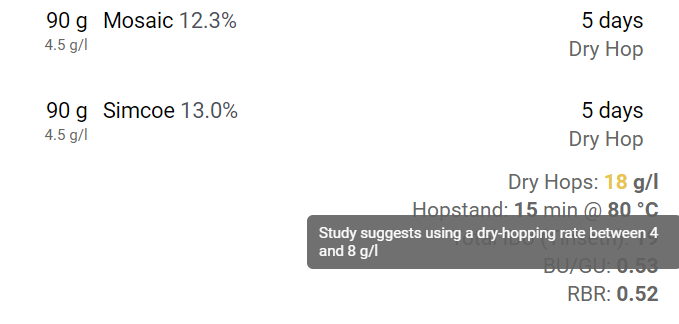Hello AntDoctor! I will watch this thread to learn more, I am having a very similar problem with some of my brews.
My experiences with the bitterness problem:
Very first batch: A NEIPA. Still brewing with partial mash and extract at this time. The beer had a slight bitter side-taste that I had never had in a beer before. I thought it was maybe the water or my process brewing with malt extract.
Third batch a chestnut beer that was dry-hopped. After bottling, there was the exact same side-taste again, but much stronger, bitter, almost-sour side taste remaining in the mouth for some time. I first thought it would come from the chestnuts. After 2 weeks of cold-storage, the bitterness suddenly disappeared...
In the meantime, tasting a beer of a local traditional brewery: The same bitterness there as well
Pale Ale 33cl Bügel. I was also thinking about oxidation as they have a traditional and organic process. But oxidation is described as a sherry-like, almost cardboard taste, which it is not really.
Batch 7: Now I just had the same thing with another NEIPA. 20 IBU, dry-hopped with 40g/l (5 ounces/gallon). I have changed the process in the meantime, I do full grain now and also some water chemistry. 2 days after bottling it was an extremely good hazy, with flavors of strawberry and lemon. Now, a week after bottling, here it is again: A very broad-bitter side taste that covers all other hop notes and remains sticky on the tongue. Now I will put it in cold storage for 2 weeks and check it again. Some people say that hoppy beers need 4-8 weeks of cold storage, but for a NEIPA it's not really true is it? I thought you are supposed to drink them very fresh...
It doesn't happen to all of my beers. I would say the risk is higher for dry-hopped beers and NEIPAS, I haven't had it in my Belgian ale, even though the process and equipment were more or less the same.
I still have the following ideas what it could be:
- Some proteins that remain in the beer and that react with the hops to create this bitterness? And dissipate over time in the cold? For the two beers with the strong taste, I was going only for a 30min boil, so maybe there were too many proteins remaining. Cold crash or a longer boil could help.
- Leftovers of the sanitizer? I take care to get rid of all sanitizer residues before contact with the wort... And then the effect should vary from bottle to bottle too...
- Hop burn? Is there anybody with experience? Does it taste like a broad-bitterness sticking on the tongue and remaining for minutes after the sip?
I will try to do a 90-minutes boil and cold-crash before bottling to find out if it gets any better, I will let you know. I still think this is a mistake in the process somewhere, a NEIPA should usually be drunk right away, no need for a long cold-storage...
Cheers and regards from Switzerland! This is my hazy when it still tasted good...




